SRP Progress in Research Webinar: Session I — Emergencies and Emerging Contaminants
Sponsored by: NIEHS Superfund Research Program
This Progress in Research webinar series will showcase research from 11 new and renewed Multiproject Center grantees, funded by SRP in 2022. These awards were made as part of the P42 grant solicitation RFA-ES-20-014. In the four-part series, awardees will highlight their research projects, accomplishments, and next steps.
The Texas A&M University SRP Center works to understand how climate-related
disasters, coupled with the vulnerability of communities disproportionately exposed to environmental contamination, increase the health risks associated with contamination events. Center scientists develop, apply, and translate a comprehensive set of tools and models to help first responders, impacted communities, and government agencies characterize and mitigate the human health consequences of exposure to hazardous mixtures.
The Michigan State University SRP Center investigates pollutants in the halogenated aromatic hydrocarbon family — including dioxins, biphenyls, and polycyclic aromatic hydrocarbons — which are commonly found at Superfund sites and pose a
human health risk. The center's central theme is to define specific aspects of environmental, microbial, and mammalian biological responses to these environmental
contaminants, with the goal of understanding their environmental fate and developing state-of-the-art remediation technologies to reduce their toxicity.
The Yale University SRP Center is driven by community-based concerns about emerging contaminants that affect water resources and drinking water supplies at multiple sites across the U.S. Center researchers engage in problem-based, solution-oriented research related to 1,4-dioxane, an emerging water contaminant that is widespread and persistent in the environment, poorly regulated, has consistently shown carcinogenic effects, and is not mitigated using standard approaches. The center addresses critical gaps in the understanding of cancer mechanisms, chemical mixture interactions, and detection and treatment technologies through innovative techniques that inform risk assessment and help affected communities remove these contaminants from their water supplies.
To learn about and register for the other sessions in this webinar series, please see the SRP website.
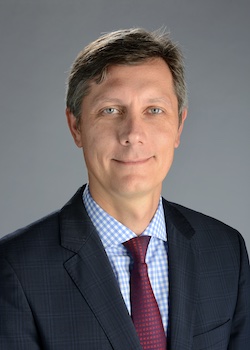 Ivan Rusyn, Ph.D., Texas A&M University (irusyn@cvm.tamu.edu)
Ivan Rusyn, Ph.D., Texas A&M University (irusyn@cvm.tamu.edu)
Ivan Rusyn is University Professor in the Department of Veterinary Physiology and Pharmacology in the College of Veterinary Medicine & Biomedical Sciences at Texas A&M University in College Station. He is also Chair of the Interdisciplinary Faculty of Toxicology, Director of an NIEHS T32 training program in “Regulatory Science in Environmental Health and Toxicology,” and Director of the Superfund Research Center. His studies on health effects of chemical agents resulted in over 310 peer-reviewed publications which were cited over 30,000 times. He has served on and chaired several US National Academies committees, World Health Organization/International Agency for Research on Cancer monograph working groups. He is serving on the advisory board for Texas Department of Public Health, and on the Research Committee of the Health Effects Institute. Dr. Rusyn received a doctor of medicine degree from Ukrainian State Medical University in Kyiv and a Ph.D. in toxicology from the University of North Carolina at Chapel Hill. He conducted postdoctoral research at the Massachusetts Institute of Technology and Heinrich-Heine University in Dusseldorf. Dr. Rusyn's laboratory is funded by grants and cooperative research agreements from the National Institutes of Health and US Environmental Protection Agency, institutional funding from Texas A&M University, the industry, and other sources.
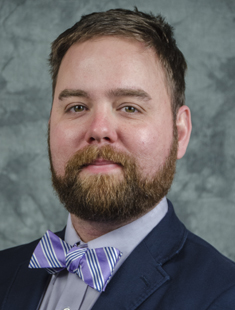 Garett Sansom, Dr.PH, Texas A&M University (sansom@tamu.edu)
Garett Sansom, Dr.PH, Texas A&M University (sansom@tamu.edu)
Garett Sansom, DrPH, is a research assistant professor in the Department of Environmental and Occupational Health at the Texas A&M University School of Public Health. His research interests are health and sustainability, community health assessment, environmental justice, urban planning, environmental containments, and community resilience. Dr. Sansom can discuss the human health implications of the environment, urban planning, water security and disaster preparedness. He holds positions with the Texas A&M Institute for Sustainable Communities and the Texas A&M Superfund Research Center. Dr. Sansom received his Bachelor of Arts in philosophy from St. Edward's University, his MPH in epidemiology and his DrPH in epidemiology and environmental health, both from the Texas A&M University School of Public Health.
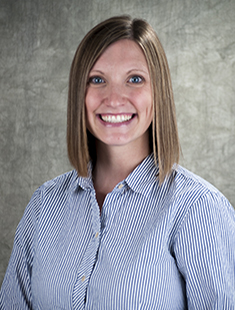 Natalie Johnson, Ph.D., Texas A&M University (nmjohnson@tamu.edu)
Natalie Johnson, Ph.D., Texas A&M University (nmjohnson@tamu.edu)
Natalie Johnson, Ph.D., is an Associate Professor in the Department of Environmental & Occupational Health and Vice Chair of the Interdisciplinary Toxicology Program at Texas A&M University. Her research group focus is investigating effects of air pollution on maternal and infant immune and respiratory dysfunction. Dr. Johnson is the recipient of an Outstanding New Environmental Scientist award from NIEHS and Interdisciplinary Research Leaders Program award from Robert Wood Johnson Foundation. Dr. Johnson is currently leading an inhalation toxicology project within the Texas A&M University Superfund Research Center.
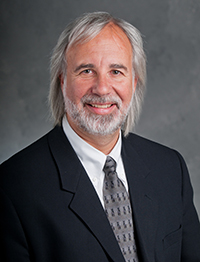 Norbert Kaminski, Ph.D., Michigan State University (kamins11@msu.edu)
Norbert Kaminski, Ph.D., Michigan State University (kamins11@msu.edu)
Norbert E. Kaminski, Ph.D. is the Director for the Institute for Integrative Toxicology and Professor of Pharmacology and Toxicology at Michigan State University. Research being conducted in his laboratory is in the general areas of immunopharmacology and immunotoxicology and encompasses a number of extramurally funded projects. A major emphasis of all of the projects is the elucidation of the molecular mechanisms for impairment of signal transduction cascades and gene expression during lymphocyte activation by drugs and chemicals. Dr. Kaminski leads the Michigan State University SRP Center. He received his B.A. in Chemistry in 1978 from Loyola University in Chicago, Illinois, and his M.S. in Toxicology in 1981 and Ph.D. in Toxicology and Physiology in 1985 from North Carolina State University in Raleigh, North Carolina.
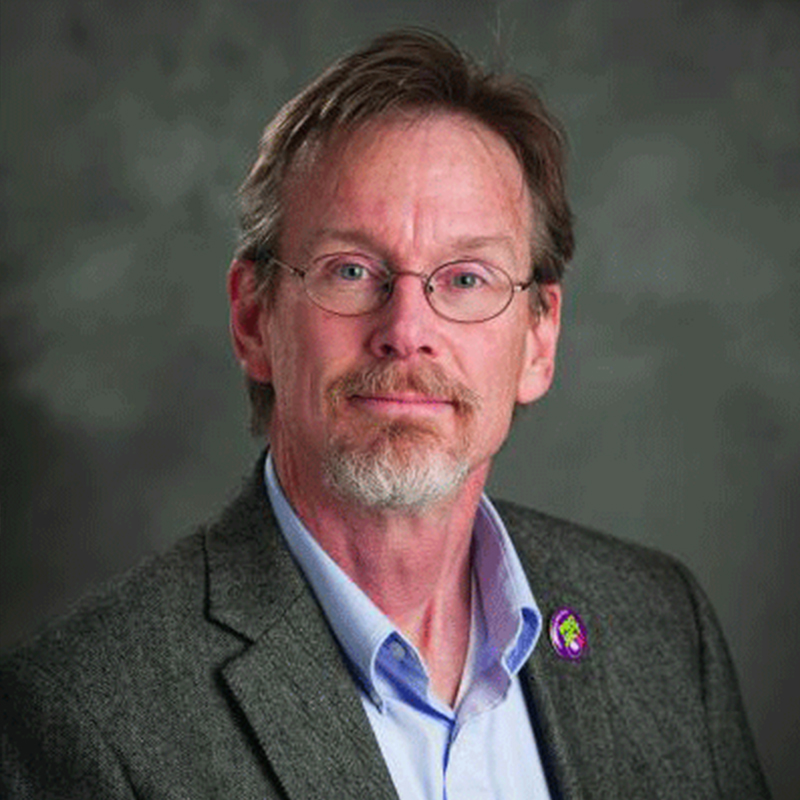 Brian Teppen, Ph.D., Michigan State University (teppen@msu.edu)
Brian Teppen, Ph.D., Michigan State University (teppen@msu.edu)
Brian Teppen, Ph.D., is a soil chemist at the Michigan State University who works mostly on mechanisms for sorption of organic pollutants to soil particles (such as clay minerals and soil organic matter) and how that sorption influences bioavailability of the pollutants. He has a B.S. in Agronomy and a Ph.D. in Soil Chemistry from the University of Arkansas.
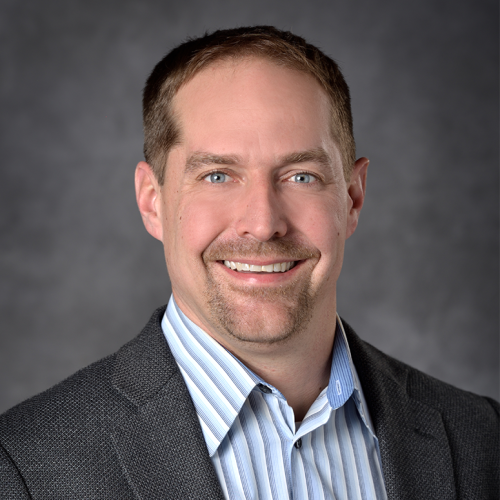 Brian Johnson, Ph.D., Michigan State University (john3582@msu.edu)
Brian Johnson, Ph.D., Michigan State University (john3582@msu.edu)
Brian Johnson, Ph.D., specializes in the design, manufacturing, automation and testing of human derived models of development and disease to study intercellular signaling. Johnson Lab employs digital manufacturing to construct biomimetic microenvironments that recapitulate intercellular signaling in development and disease. The lab's translational research goals are to develop strategies and enabling technologies that increase precision in the treatment of disease and to identify chemical exposures that lead to birth defects in vulnerable populations.
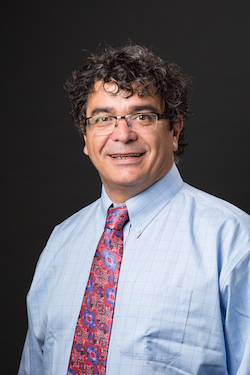 Vasilis Vasiliou, Ph.D., Yale University (vasilis.vasiliou@yale.edu)
Vasilis Vasiliou, Ph.D., Yale University (vasilis.vasiliou@yale.edu)
Vasilis Vasiliou, Ph.D., is Professor and Chair of the Department of Environmental Health Sciences at Yale University. He received his BSc in Chemistry (1983) and PhD in Biochemical Pharmacology (1988) from the University of Ioannina, Greece. Dr. Vasiliou has established an internationally-recognized research program that has been continuously funded by NEI/NIH and NIAAA/NIH since 1997, and recently NIEHS. His research interests include the etiology and molecular mechanisms of environmentally-induced human disease, such as liver disease, obesity & diabetes, cancer, and neurodegenerative diseases. Dr Vasiliou is the director of the NIEHS-funded P42 Yale Superfund Research Center and also the director of the NIAAA-funded R24-Resource Center for Mouse Models and Metabolomics Tools to Investigate Alcohol Metabolism and Tissue Injury. Dr. Vasiliou has published over 250 papers and edited three books on Alcohol and Cancer. Dr. Vasiliou is the editor of Human Genomics and serves on the editorial boards of several toxicology and visual sciences journals.
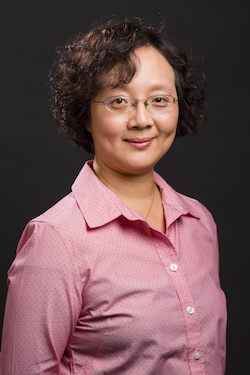 Ying Chen, M.D., Ph.D., Yale University (ying.chen@yale.edu)
Ying Chen, M.D., Ph.D., Yale University (ying.chen@yale.edu)
Ying Chen, M.D., Ph.D., has a broad background in environmental genetics and molecular toxicology, with specific training and expertise in redox biology, oxidative stress related diseases, and transgenic mouse models of redox dysregulation. Her research over the past ten years utilizes unique animal models and applies the system biology approach integrating multi-omics data and histopathology to understand the mechanistic roles of redox homeostasis in disease conditions related to environmental and dietary exposures.
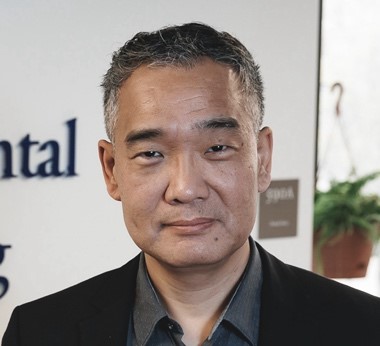 Jaehong Kim, Ph.D., Yale University (jaehong.kim@yale.edu)
Jaehong Kim, Ph.D., Yale University (jaehong.kim@yale.edu)
Jaehong Kim, Ph.D., is currently Henry P. Becton Sr. Professor of Engineering at Chemical and Environmental Engineering in School of Engineering and Applied Science at Yale University. His areas of interest include: 1) environmental application of nanomaterials and single atom catalysts; 2) electrochemical technology for environmental and energy application; and 3) on-site synthesis of water treatment chemicals and catalytic advanced oxidation processes. Kim received B.S. and M.S. degrees in chemical and biological engineering from Seoul National University in Korea in 1995 and 1997, respectively, and a Ph.D. degree in environmental engineering from the University of Illinois at Urbana-Champaign in 2002.
Moderator:
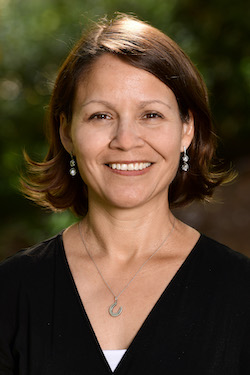 Danielle Carlin, Ph.D., D.A.B.T., NIEHS Superfund Research Program (danielle.carlin@nih.gov)
Danielle Carlin, Ph.D., D.A.B.T., NIEHS Superfund Research Program (danielle.carlin@nih.gov)
Danielle Carlin, Ph.D., D.A.B.T., is a health scientist administrator with the NIEHS Superfund Research Program (SRP). Her position consists of providing guidance and advice to grantees applying for SRP Center grants and serving as the lead liaison between SRP trainees and the various training opportunities offered by SRP. Her current research interests include chemical mixtures, combined exposures, metals, asbestos, and xenobiotic metabolism. Dr. Carlin conducted her postdoctoral training at the University of North Carolina, where she first studied aerosolized drugs/vaccines for treatment and prevention of tuberculosis for two years and then focused on the toxicological effects of exposure to Libby amphibole asbestos in the rat model. She received her Ph.D. in 2005 from Kansas State University, College of Veterinary Medicine, Department of Anatomy and Physiology. She also has a B.S. and M.S. in animal science from New Mexico State University.
Webinar Slides and References:
-
 Slide Presentation for for Michigan State University SRP Center (2.55MB/PDF)
Slide Presentation for for Michigan State University SRP Center (2.55MB/PDF)
-
 Slide Presentation for Yale University SRP Center (4.20MB/PDF)
Slide Presentation for Yale University SRP Center (4.20MB/PDF)
Additional Resources:
 NIEHS Superfund Research Program Fact Sheet
NIEHS Superfund Research Program Fact Sheet - Register for Texas A&M University's HAZWOPER training.
- Register for Texas A&M University's Disaster Research workshop.
- NIEHS "Limited Competition: Superfund Hazardous Substance Research and Training Program (P42 Clinical Trial Optional)" funding opportunity, RFA-ES-23-001.
- NIEHS Superfund Research Program Funding Opportunities webinar on May 15, 2023, from 12-1 pm EDT.
- Email srpinfo@mail.nih.gov to be added to the SRP Risk e-Learning listserv.
Thank you for participating in our webinar. We would like to receive any feedback you might have that would make this service more valuable.
Help & FAQs
- Frequently Asked Questions
- Content Questions?
Call Mali Velasco Delgado at 919-794-4708 or mali.velascodelgado@nih.gov - Technical Problems?
Leave us a comment - Cancel Your Registration
- My Participation Records
- CEU Credits and PDHs
Zoom Resources
Before Webinar Day
This seminar will be delivered through Zoom. Participants are encouraged to update to the latest version of the Zoom application for the best experience.
If you are unable to install the Zoom application, most functions will be available if you join just using a modern web browser such as Chrome, Edge or Firefox. We strongly encourage you to run the Zoom Meeting Test prior to attending this webinar. Technical support on the day of the webinar will be very limited and subject to significant delays.
Backup Conference Call
If you cannot participate using online audio, you may join the optional call in line. After checking in for the live event using the instructions listed below, you will see several options to participate. Please click the links in option 4 to follow along by phone and obtain the call in number. If you cannot access the phone number, you may request the call in line from the event moderator in the Q&A or send an email to Jean Balent at balent.jean@epa.gov
Click on "Join Webinar" at the top of this screen, enter your exact first and last name as you registered and enter the number of people attending at your location (including yourself). You should then be taken to the Zoom meeting room. Join with Zoom Application: For those joining with the Zoom application, you may be prompted to sign with a zoom account or join as a guest without signing in.
If joining as a guest, you will be prompted to enter your name and email address. Remember your name, image, video or voice may be visible to others in the live event. When done, click "Join" When it is time for the live event to start, the meeting host will admit you to the live Zoom meeting. Join via web browser (without the Zoom Application): For those joining with a web browser, you may close any pop ups prompting you to download the Zoom app. The next window will allow you to enter your name (first name and last name) and check the box that you are not a robot. Click the blue join button. You may also be asked to provide your email address before joining the room. Remember your name, image, video or voice may be visible to others in the live event. When done, click "Join" When it is time for the live event to start, the meeting host will admit you to the live Zoom meeting. You may need to periodically refresh the browser window to confirm if the host has admitted you. The presenters will control what slide you are viewing. You may submit questions online for the instructors to answer during the webinar by typing in the "Q&A" area. It is not necessary to wait until the question and answer periods to submit questions. At the end of the webinar you will be guided to our feedback form and links to additional resources, including the complete presentation. These links will remain active after the webinar. Provided for your convenience. Importing or accepting the invitation within this iCalendar file is not required, and declining the invitation does not cancel your registration. For additional information on iCalendar, please see our
iCalendar Help It is EPA's policy to make reasonable accommodation to persons with disabilities wishing to participate in the agency's programs and activities, pursuant to the Rehabilitation Act of 1973, 29 U.S.C. 791. Any request for accommodation should be made to at or , preferably one week or more in advance of the webinar, so that EPA will have sufficient time to process the request. EPA would welcome specific recommendations from requestors specifying the nature or type of accommodation needed. EPA welcomes specific recommendations from requestors specifying the nature or type of accommodation needed. Please note that CLU-IN provides both alternate phone call-in options and closed captioning for all webinars, and requests for these specific accommodations are not necessary.
Webinar Day, Checking In


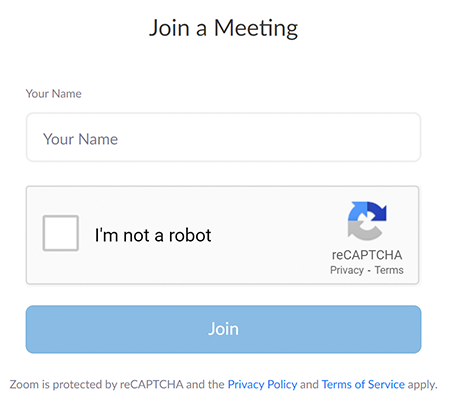
Moving Through Slides
Feedback & Links to Additional Resources
iCalendar File
Rehabilitation Act Notice for Reasonable Accommodation
Rehabilitation Act Notice for Reasonable Accommodation
It is EPA's policy to make reasonable accommodation to persons with disabilities wishing to participate in the agency's programs and activities, pursuant to the Rehabilitation Act of 1973, 29 U.S.C. 791. Any request for accommodation should be made to at or , preferably one week or more in advance of the webinar, so that EPA will have sufficient time to process the request. EPA would welcome specific recommendations from requestors specifying the nature or type of accommodation needed. EPA welcomes specific recommendations from requestors specifying the nature or type of accommodation needed. Please note that CLU-IN provides both alternate phone call-in options and closed captioning for all webinars, and requests for these specific accommodations are not necessary.
Webinar Recording
By participating in this CLU-IN webinar, you automatically agree to authorize recording of audio and visual content presented during this live event and consent to subsequent use of this recording in the public domain by the U.S. Environmental Protection Agency. This recording may include questions, comments and poll responses provided by you during the live event in addition to your name, voice, image or likeness. This recording will be made available after the conclusion of the live event as part of the CLU-IN webinar archives, and will remain available indefinitely. If you do not wish to consent to the recording, please do not join the live event, and contact Jean Balent at 202-566-0832 or balent.jean@epa.gov to discuss your concerns.
Content Disclaimer
This webinar is intended solely to provide information to the public. The views and opinions expressed as part of this webinar do not necessarily state or reflect those of the U.S. Environmental Protection Agency. It is not intended, nor can it be relied upon, to create any rights enforceable by any party in litigation with the United States, or to endorse the use of products or services provided by specific vendors. With respect to this webinar, neither the United States Government nor any of their employees, makes any warranty, express or implied, including the warranties of merchantability and fitness for a particular purpose, or assumes any legal liability or responsibility for the accuracy, completeness, or usefulness of any information, apparatus, product, or process disclosed, or represents that its use would not infringe privately owned rights.

